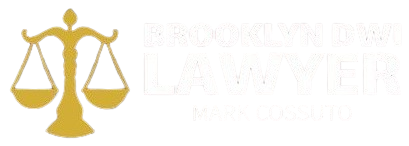Drunk driving offenses pose a significant threat to public safety, and the state of New York city takes them very seriously. Understanding the laws and consequences surrounding these offenses is crucial to protecting oneself legally. In this comprehensive guide, we will delve into the intricacies of drunk driving offenses in New York city, highlighting key aspects and providing insights from the experienced legal team at Mark Cussoto Law Firm.
1: The Legal Blood Alcohol Concentration (BAC) Limit in New York city
In New York city, it is unlawful for an individual to operate a motor vehicle with a blood alcohol concentration (BAC) of 0.08% or higher. This legal limit applies to drivers of all ages and vehicle types, including cars, motorcycles, and commercial vehicles. It is essential to understand that even a single drink can impair judgment and reaction time, making it dangerous to get behind the wheel.
2: Types of Drunk Driving Offenses
- Driving While Intoxicated (DWI):
- DWI refers to operating a vehicle with a BAC of 0.08% or higher, or while impaired by drugs or alcohol.
- The penalties for a DWI offense can include fines, license suspension, mandatory alcohol evaluation, and even potential jail time, depending on the circumstances.
- Aggravated Driving While Intoxicated (Aggravated DWI):
- Aggravated DWI applies when an individual operates a vehicle with a BAC of 0.18% or higher, which is considered a higher level of intoxication.
- The penalties for an aggravated DWI offense are more severe, often including increased fines, longer license suspension, mandatory alcohol education programs, and the possibility of a longer jail sentence.
- Driving While Ability Impaired (DWAI):
- DWAI refers to operating a vehicle while the ability to do so is impaired by alcohol or drugs.
- The penalties for a DWAI offense are less severe than DWI but can still include fines, license suspension, and mandatory alcohol education programs.
3: Consequences of Drunk Driving Offenses in New York city
- Criminal Penalties:
- Drunk driving offenses in New York city can result in criminal charges, leading to fines, probation, community service, mandatory alcohol counseling, and potential imprisonment.
- Repeat offenders or those involved in accidents causing injury or death may face more severe consequences, including felony charges and longer prison sentences.
- Administrative Penalties:
- In addition to criminal penalties, individuals convicted of drunk driving offenses in New York face administrative consequences from the Department of Motor Vehicles (DMV).
- These consequences can include license suspension or revocation, mandatory installation of an ignition interlock device, and increased insurance premiums.
4: Seeking Legal Representation from Mark Cussoto Law Firm If you are facing a drunk driving offense in New York city, it is crucial to seek experienced legal representation to protect your rights and navigate the legal process effectively. The knowledgeable team at Mark Cussoto Law Firm has extensive experience in handling drunk driving cases and can provide the guidance and support needed.
Conclusion:
Understanding the laws and consequences surrounding drunk driving offenses in New York city is essential for everyone. By recognizing the legal BAC limit, types of offenses, and their associated penalties, individuals can make informed decisions to protect themselves and others on the road. In case of a drunk driving offense, seeking professional legal representation from Mark Cussoto Law Firm can greatly assist in achieving the best possible outcome while navigating the legal complexities. Remember, responsible choices behind the wheel can save lives and prevent unnecessary legal troubles.


